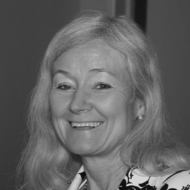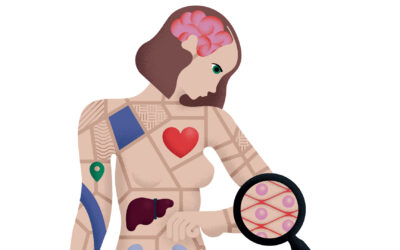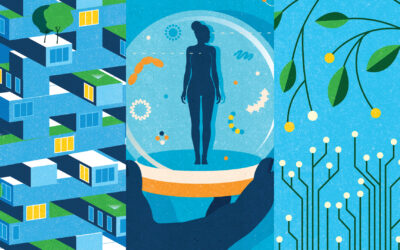CIFAR MacMillan Multiscale Human
Is it possible to create a multiscale map of the human body?
The human body has 37 trillion cells. In this incredibly complex and dynamic system, changes at the molecular level alter cell behaviour, tissue architecture and the function of organs; in the other direction, changes in the environment can feed into the body and cause molecular changes. The CIFAR MacMillan Multiscale Human Team seeks to understand the system at all these scales to create an unprecedented map of the human body and help drive medical advances.
The fundamental challenge the researchers will address in the CIFAR MacMillan Multiscale Human program is how to integrate data from various spatial and temporal scales across the body while accounting for diversity in the 8 billion strong global population. To do this, the program will bring together researchers with diverse disciplines and a shared goal — to understand, map, and communicate the multiscale human.
IMPACT CLUSTERS
The CIFAR MacMillan Multiscale Human program is part of the following CIFAR Impact Clusters: Decoding Complex Brains and Data; Exploring Emerging Technologies and Shaping the Future of Human Health. CIFAR’s research programs are organized into 5 distinct Impact Clusters that address significant global issues and are committed to fostering an environment in which breakthroughs emerge.
Path to Societal Impact
Areas of focus:
- Catalyzing medically relevant discoveries about how the human body works, from development to disease and aging
- Working with large biobank consortia to explore ways of incorporating global health and genetic data into multiscale maps and models of the human body
- Bringing together biologists with imaging, computational and digital cartography specialists to spur the development of new tools, both in hardware and software

























